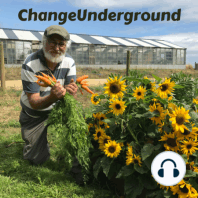7 min listen

82 Stranded Assets | #worldorganicnews |2017 09 18
82 Stranded Assets | #worldorganicnews |2017 09 18
ratings:
Length:
8 minutes
Released:
Sep 17, 2017
Format:
Podcast episode
Description
LINKS CONTACT: podcast@worldorganicnews.com **** This is the World Organic News for the week ending 18th of September 2017. Jon Moore reporting! I’d like to begin this week with a big shout out to FarmerHarper! And I quote: So glad to stumble on this podcast 5 stars End quote. Thank you for the review and rating FarmerHarper, you have indeed given this podcaster an enormous thrill! Now to this week’s focus.... Stranded Assets! Floods in South Asia, fires across Europe and the US west and north and, of course, those hurricanes of late all point, if not directly, but perhaps cumulatively to evidence of the climate reacting to CO2 concentrations above 400 ppm. And into this 46 degree celsius (that’s about 115 degrees F) heat waves here in Australia’s east last summer, twice, and I see no reason not to act. Are but the economy I hear some people screaming. The economy indeed. Do we have any evidence from the past which help point us in a direction of least suffering, economically? Well yes. When we think about winners and losers in any change from fossil fuels to renewables there are obvious losers. Owners/operators of coal and gas fired power plants spring to mind. These industrial structures have a major byproduct of CO2. So they will have to be abandoned. Re purposing is difficult. There have been some attempts to replace coal with biomass, trees, but these have not been pursued with any great gusto. Their advantage would be a carbon neutral cycle, in theory. Growing trees would suck up the CO2 burning dead trees would produce. The problem, at present, is getting the dead trees to the power plants without spending CO2. So it seems, eventually, these power plants will need to stand idle. Those with shares in the companies who own them will be left with stranded assets. There, we got to those words, eventually. There is a history of stranded assets. Vast hoards of bronze ingots buried around the time the iron age kicked off spring to mind. I saw this phenomenon on a documentary but can’t find a reference at present. So as bronze became an old technology, those holding it were left holding a stranded asset. The world continued on. Not good if your entire wealth was held in bronze ingots but the world rolled on. More recently, shareholders of typewriter companies where in a similar situation. And typewriters are instructive. Let me come back to typewriters via a circular excursion. There have been calls for a price on carbon for a few decades. In the same way this mechanism was used to phase out CFCs to protect the ozone layer. That situation was different. There was one major producer of CFCs, DuPont, I believe, and they were happy to phase out CFCs as they had other products they could sell, surprisingly, at higher prices. With carbon, we do not have one dominant producer happy to move onto newer products for greater profit. What we have is newer technologies which will replace the fossil fuel industries in the same way tractors replaced horses. Not good if you’re a horse, great if you make tractors. Not good if you own a coal fired power plant, great if you manufacture photovoltaic cells. Given the continually falling price of both photovoltaic cells and wind turbines, the need for a price on carbon is reduced to an argument in favour of two things. One, a price on carbon will speed up the de-carbonising of the world economy: and Two, the traders who helped build the fossil fuel economy are best placed to replace that economy by making money trading carbon credits. I can see the first argument but would suggest it is unnecessary. Rather than price carbon, simply remove the subsidies given to coal miners, electricity producers who use coal and gas and the vehicle manufacturers. The renewable sector is now at scales sufficient to continue lowering the unit prices of solar cells and wind turbines. We haven’t seen the full development of fuel cells, hydrogen producing algae, wave energy and who knows what else we dream up. How does
Released:
Sep 17, 2017
Format:
Podcast episode
Titles in the series (100)
23 #worldorganicnews 2016 07 04: A new documentary "What's With Wheat?", Industria… by ChangeUnderground